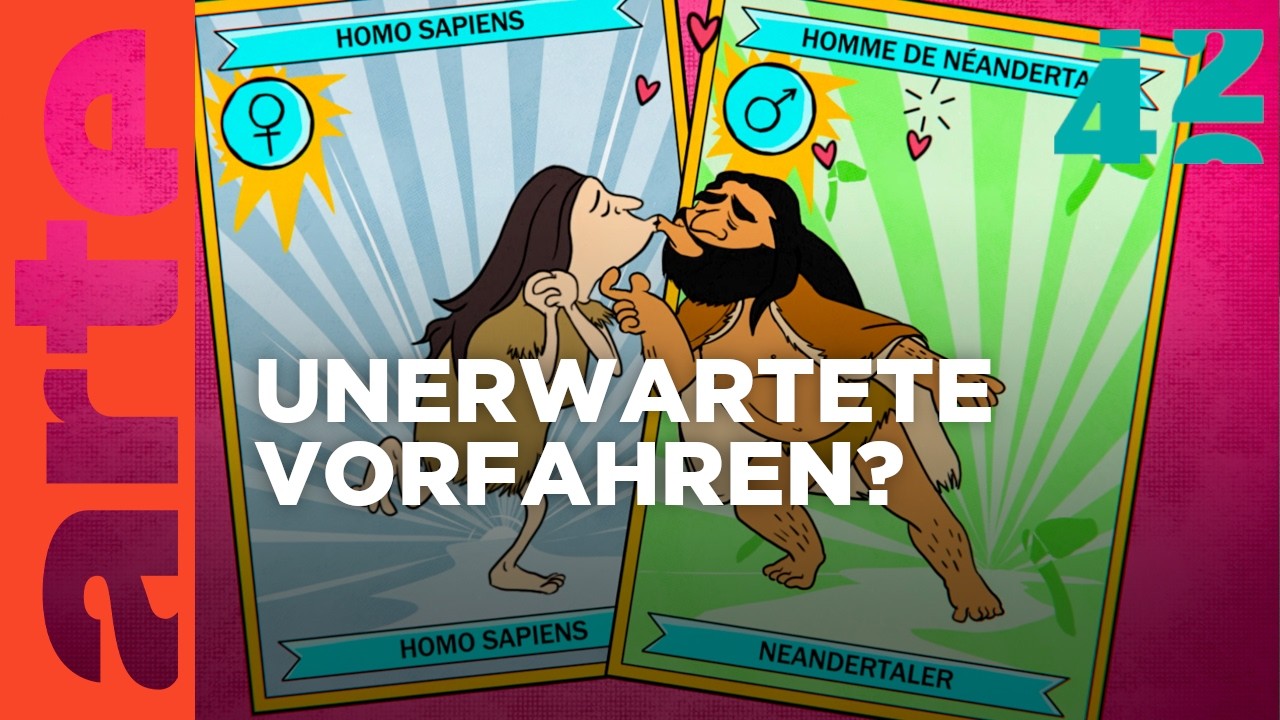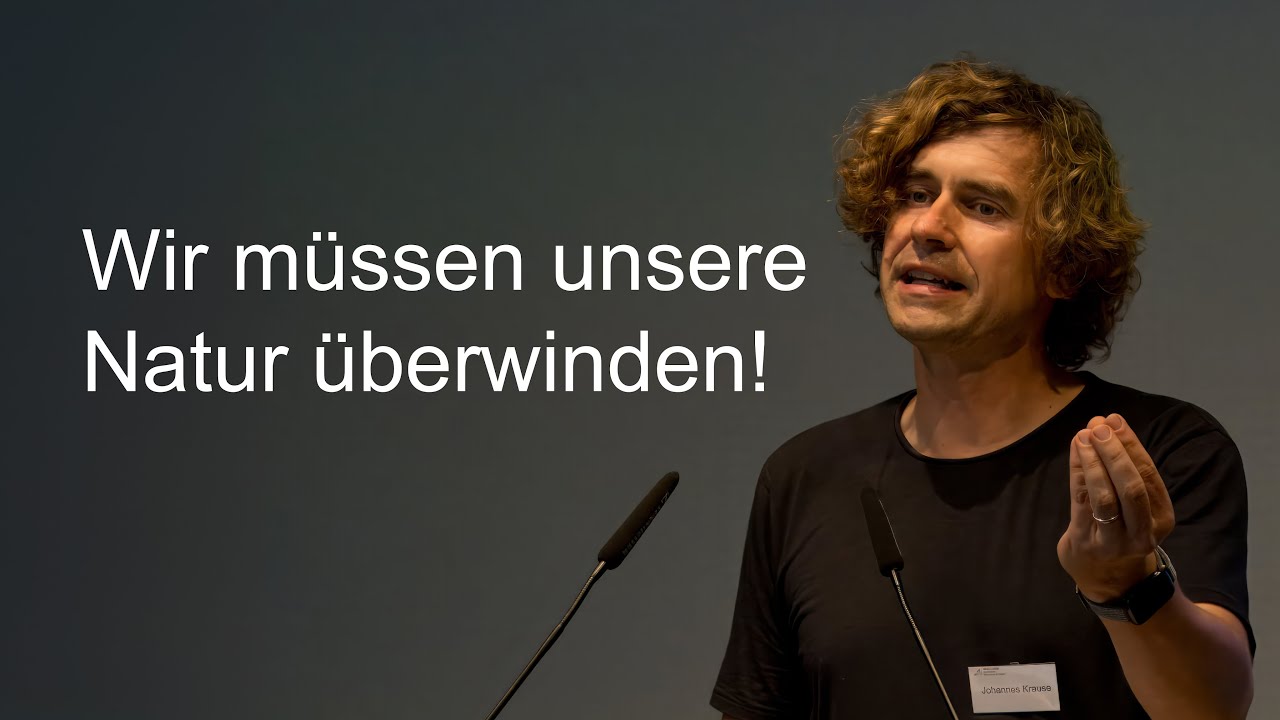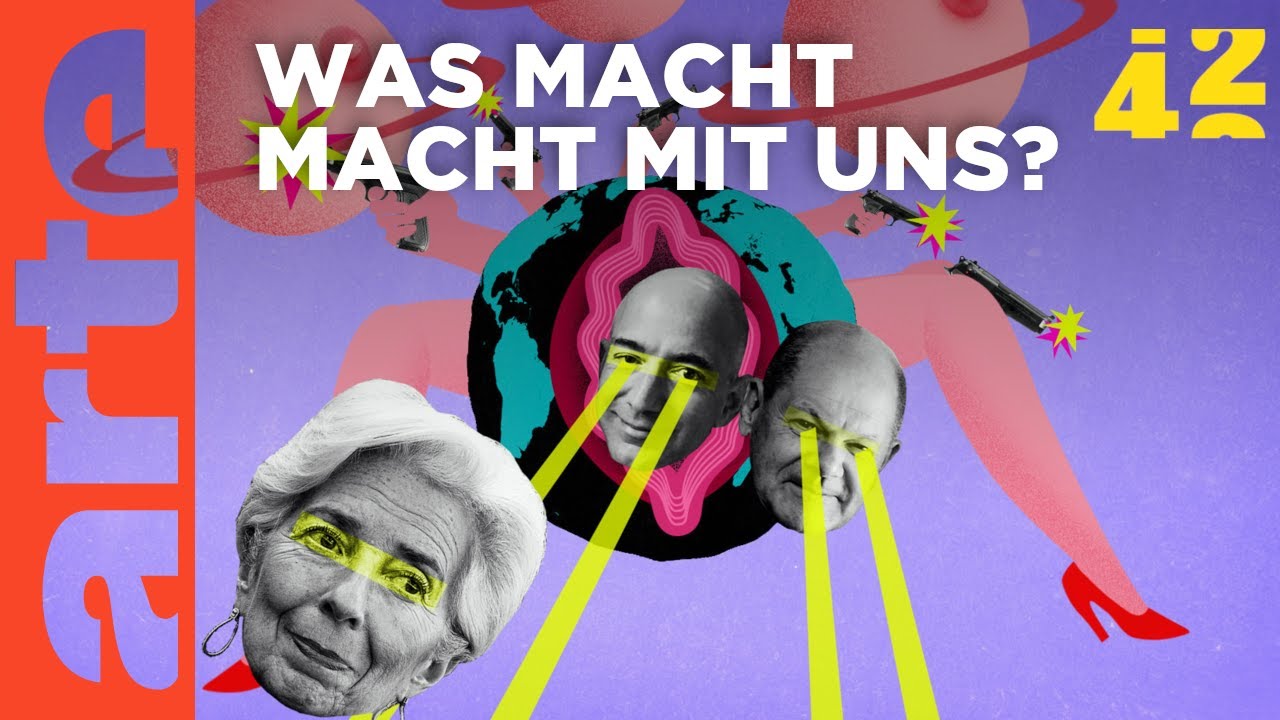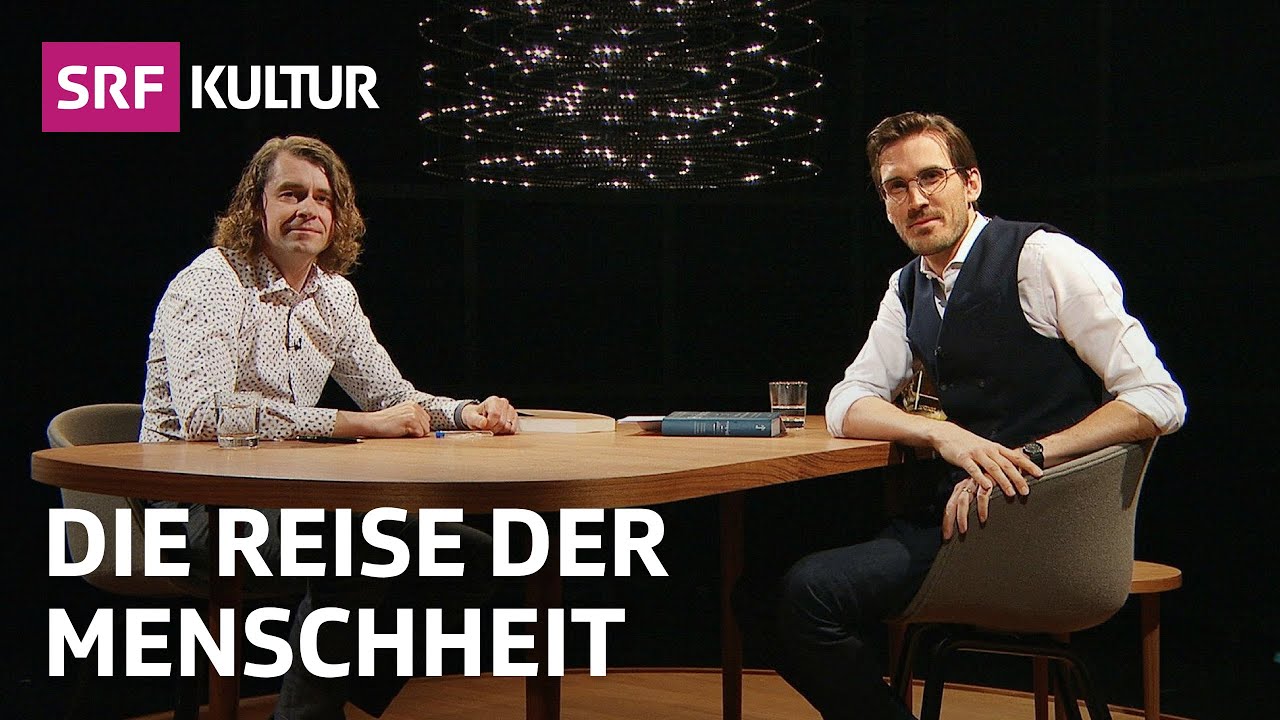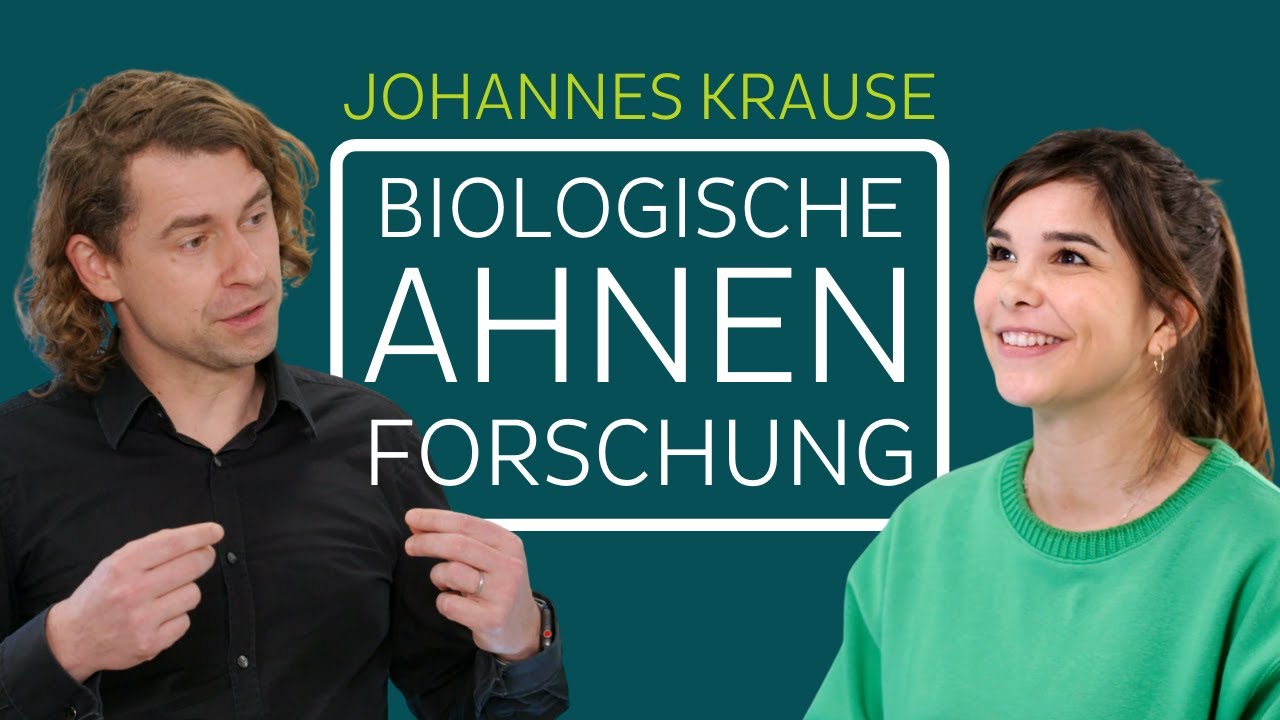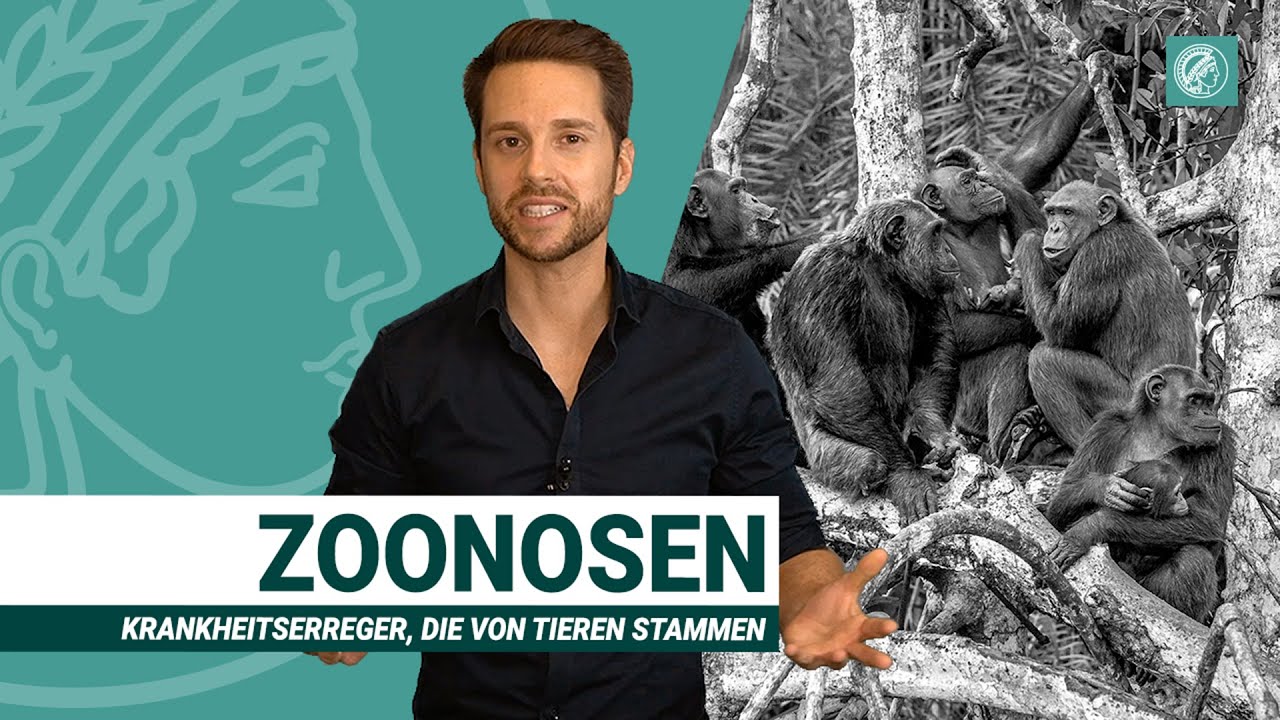Audio & video
Archaeogenetics: Writing history through DNA analysis
Ö1 "Dimensionen", March 11, 2025: Genetics is becoming an important tool for archaeologists and historians, especially when looking far back in time. Link to prodcast episode (in German).
Why do we lie?
BBC "Why do we do that?", Series 2, Episode 6; January 29, 2025: You might think that deception is a uniquely human characteristic, but does camouflage or mimicry in nature, where animals pretend to be another animal or the actual environment like the insects leaf-mimic katydids that walk around looking like a leaf. Does that count as lying? Or is it just us humans with our highly complex language that have the ability to tell a fib. Ella Al-Shamahi talks to Dr Roman Stengelin of the Max Planck Institute for Evolutionary Anthropology, who investigates children from very different cultures to discover when and how they develop this very human ability and professional poker player Liv Boeree to discover the art of bluffing. Link to podcast episode.
Why Lucy is the most famous human ancestor fossil
Deutsche Welle TV, November 22, 2024: Lucy shot to superstardom after her discovery in Ethiopia in 1974. The members of the archaeological expedition who found her named her after the Beatles song "Lucy in the sky with diamonds". Researchers from the Department of Human Origins at the Max Planck Institute for Evolutionary Anthropology in Leipzig have contributed to this documentary, which marks the 50th anniversary of Lucy's discovery. Watch the video.
Are we now getting to know our ancestors?
42 - The answer to almost everything | ARTE, November 01, 2024: Are all humans in the world genetically closely related? Or do people live on different continents, having evolved from different pre-human species? If so, Europeans and Americans would be distant cousins at best. Such questions were fiercely debated before the pioneers of archaeogenetics developed the ability to extract intact DNA from ancient bones over the past two decades, making our genetic past readable. We now know so much more about Homo sapiens' journey through the millennia. Our genetic material tells us about the early human populations, their struggles during the last Ice Age, their encounters with Neanderthals - of whom we still carry bits and pieces today. It seems that some things were different from what we thought. Video in German.
Why am I white?
MDR Wissen, October 02, 2024: Big questions in 10 minutes by MDR Wissen. With Johannes Krause. Link to podcast episode in German.
Johannes Krause: Hubris. The Rise, Fall and Future of Humanity
Academy of the Diocese of Rottenburg, Stuttgart Conference Center, July 05, 2024: What has so far made the human species the winner of evolution now threatens to be its undoing: The "bigger, faster, further" of it's innate expansionism inevitably comes to an end in a limited and completely colonized world. Humans have become a threat to their fellow creatures and to themselves. Unless they overcomes their nature! Video in German.
Are people black or white?
Deutsche Welle TV, June 11, 2024: People are discriminated against on the basis of their skin color across the world. And yet there is a simple scientific explanation as to why skin color varies. In this episode “What's up with race” Prof. Johannes Krause explains the role of genetics and the real cause of racism. Watch the video.
Can we live without power?
42 - The answer to almost everything | ARTE, June 02, 2024: Even two-year-olds know who is in charge on the playground. And it stays that way for the rest of their lives. But the playground becomes the school, the office, the sports club, the family. We seem to have a kind of built-in "hierarchometer" that tells us who is on top and who is on the bottom in every social situation. And power changes people. Powerful people take dangerous risks, become impulsive, less empathetic, sometimes even blinded by power. This leads to conflicts and even wars. But if power has so many dark sides, isn't it time to get rid of the power corset? Community without fixed power structures has been tried and is still being tried. Solidarity farming, kibbutzes, cooperatives - many things work surprisingly well when everyone has a say. The Bayaka hunter-gatherers of the Congo, for example, live in an egalitarian social community. There is no leader and no hierarchy. Power is only exercised when it comes to coordinating the hunt, for example. So could we live without power - or is our society far too complex to manage without hierarchies? Video in German.
Planet of the Apes or how liana spit upgrades your evolution game
Wissen hinter den Kulissen (Knowledge behind the scenes), May 18, 2024: The Planet of the Apes franchise has already spawned 10 films. Just in time for the release of the latest installment "New Kingdom" we take a closer look: Do chimps, gorillas and orangutans really do what the apes do on screen? Could Ceasar & Co. really become as smart as us one day? And what does all this have to do with sex? We tell you in this episode - including valuable parenting tips! Link to podcast episode in German.
Fascination Earth: Gabon - Africa's last paradise?
ZDF, Terra X, April 21, 2024: Are there still intact habitats where humans and animals can live in harmony? Gabon's rainforests are the green heart of Africa. Is it the last Garden of Eden? Video in German.
How do we know?
ARD, Planet Schule, March 04, 2024: How do scientists work? What technologies are used and what conclusions can be drawn from the research? "How do we know? makes research understandable and shows how scientific work works. Research is a dynamic process. With new methods, it is always possible to gain new insights and new knowledge. The first season is about human evolution. Videos in German.
How important is the cold?
detektor.fm, December 21, 2023: The cold plays an important role in many processes - on this planet as well as in space. We take a look at the Earth's ice sheets, the Ice Age and the formation of stars. Link to podcast episode in German.
A new picture of Ötzi
detektor.fm, 17 August 2023: The glacier mummy Ötzi has fascinated scientists for more than 30 years. Now researchers have gained new insights from his genes. Where did Ötzi really come from and how is our image of him changing? Link to podcast episode in German.
Human Evolution, Neanderthals, and Denisovans
Offspring Magazine - The Podcast (Max Planck PhDNet), August 05, 2023: Today, Bea talks to Prof. Dr. Johannes Krause, a director at the Max Planck Institute for Evolutionary Anthropology. His research focuses on the analysis of ancient DNA to investigate topics such as pathogens from historic and prehistoric epidemics, human genetic history, and human evolution. Link to podcast episode.
Our hand - stroke of genius of evolution
3sat Wissen, May 25, 2023: With 27 bones each, hands are an anatomical marvel. We can write and create things with them, thanks to fine motor skills our hands are a perfect multifunctional tool. Video in German.
My body. My words.
ARD Wissen, May 22, 2023: Where is our language heading? For at least 40,000 years, we humans have been able to do something absolutely unique: produce and understand language and thus also capture abstract and symbolic contexts. How do we do that? Video in German.
"Why is there a little Neanderthal in all of us?"
Kinderuni Vogtland, November 05, 2022: Lecture for children by Professor Dr. Johannes Krause from the Max Planck Institute for Evolutionary Anthropology in Leipzig. "If you were to write down the DNA blueprint, it would fill 300 Harry Potter books with a total of 150,000 pages." Video in German.
Johannes Krause: The journey of our genes
Deutsches Museum, November 02, 2022: The field of archaeogenetics deals with the extraction and analysis of genetic material from archaeological finds such as bones and teeth. For example, studies have shown that the settlement history of Europe since the Ice Age has been marked by numerous migratory movements - both into and out of Europe. In addition, with the help of archaeogenetics, it is now possible to genetically trace certain disease patterns, characteristics such as skin, hair and eye color, as well as other adaptations over several thousand years. Video in German.
How the Romans brought the house rat to Europe - and the Plague
DLF, May 04, 2022: With the expansion of the Roman Empire, the domestic rat also spread in Europe, with its collapse it died out again. This is what researchers led by anthropologist Johannes Krause conclude from the analysis of ancient DNA from rats. The most important finding: this could also be the explanation for the fact that the Plague disappeared in Europe for several hundred years. It is originally a rat disease. Audio in German.
Johannes Krause: "I think we will get to personalised medicine"
Cicero Science Podcast, April 22, 2022: Johannes Krause is a Director at the Max Planck Institute for Evolutionary Anthropology in Leipzig, Germany. One of his major scientific achievements is the reconstruction of the mitochondrial DNA of the so-called Denisovans, a previously unknown group of extinct humans. In this podcast Krause talks with ancient historian Michael Sommer and evolutionary biologist Axel Meyer about the current state of knowledge in genetics and archaeogenetics. Audio in German.
How much prehistoric human DNA is still in us?
SRF | Johannes Krause – How much prehistoric human DNA is still in us?, April 09, 2022: Johannes Krause is rewriting the history of humankind. As an archaeogeneticist, he is investigating the genetic makeup of our ancestors and has even discovered a new type of human. In this interview he talks with Yves Bossart about the questions where humans really originated from and how much prehistoric human DNA is still in us.
From whom do we descend?
detektor.fm, podcast, April 06, 2022: Are we descended from Neanderthals? According to our genes - probably not. Johannes Krause of the Max Planck Institute for Evolutionary Anthropology analyses ancient DNA to find out where modern humans come from and also how our ancestors lived thousands of years ago. Audio in German.
Johannes Krause: Biological ancestry research | "Aha" moment in Archaeogenetics
BIOTOPIA LAB, March 31, 2022: How far back does our family tree go? Archaeogeneticist Johannes Krause from the Max Planck Institute for Evolutionary Anthropology in Leipzig, Germany, explains how biochemical methods can be used to find out spectacular things about our past: Are we all somehow related to each other? What other species of humans existed on Earth in the past, and do we still carry a part of them within us? Johannes Krause reveals how a tiny bone led to his "aha" moment.
Neanderthal DNA: "A double-edged sword"
detektor.fm, podcast, March 10, 2022: Many people share a small percentage of their DNA with Neanderthals. But how does Neanderthal DNA actually influence our immune system in the fight against Covid-19? This is explained by researcher Hugo Zeberg of the Max Planck Institute for Evolutionary Anthropology in Leipzig and the Karolinska Institutet in Sweden. Audio in German.
Migration stories from the Stone Age
DLF Kultur, December 17, 2021: As an archaeogeneticist, Johannes Krause decodes the DNA of bones that are sometimes hundreds of thousands of years old. This is how we learn who our ancestors were. Audio in German.
Archaeogenetics - A look into the genes
3Sat NANO, September 28, 2021: A team of researchers from the Max Planck Institute in Leipzig has reconstructed the oldest human genome studied to date. It comes from a woman who lived more than 45,000 years ago and died in what is now the Czech Republic. Using her DNA, the scientists were able to gain new insights into the life of the first humans in Europe, and make concrete statements about their relationship to us Europeans today. Video in German.
Zoonoses - pathogens originating from animals
Corona, HIV, BSE, Ebola, avian flu. In recent decades, we have been repeatedly alarmed by infectious diseases that have been transmitted from animals to humans. But how do such zoonoses arise, how can we prevent them from spreading and what do zoonoses have to do with the worldwide extinction of species?
